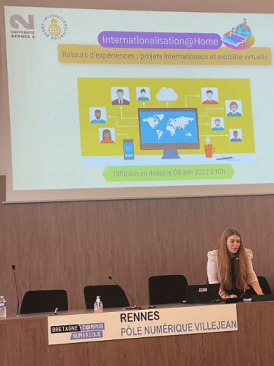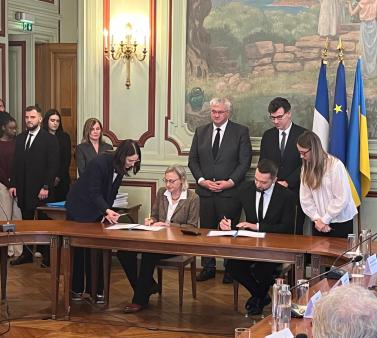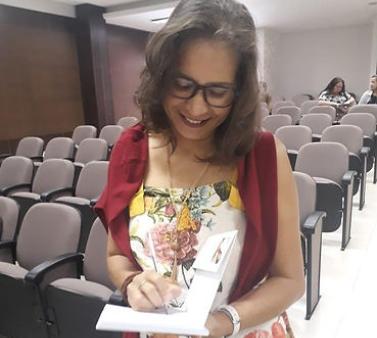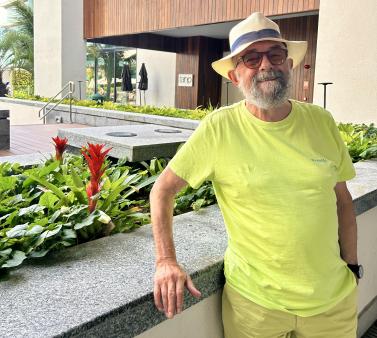
The Internationalisation at Home (IaH) program has been underway for a number of months at Rennes 2. Below, we speak with Marylou Grivault, a Pedagogical Engineer at the University Office of Pedagogy Services (SUP), who is in charge of the project.
Could you describe in a few words the Internationalisation at Home program for us ?
With pleasure. Since the pandemic, most universities have been encouraging remote collaboration which, beyond being environmentally friendly, has enabled the development of new international collaborations. Rennes 2 University wanted to be part of this dynamic and, as such, we developed a specific IaH program, which aims to encourage international virtual exchanges by offering a remote international teaching and learning experience. Furthermore, IaH can also prepare students for a physical departure and fits in very well with the new Erasmus+ program, which encourages short-term mobilities (from one week). Finally, it provides personalized support to teachers wishing to set up new international collaborations.
My role is to accompany teachers in the studying, analysis, management and realization of their projects with their international partners.
How is it funded?
Led by the Vice President for Internationalisation, Lesley Lelourec, it was launched in January 2022, and is funded by the University's Dialogue Stratégique et de Gestion, which provides one-time financial support for strategic projects at the University. Thereafter, the scheme will be taken over by the NCU project "Cursus Ide@l".
How does encouraging international virtual exchanges contribute to a more inclusive university?
Generally speaking, the number of students in a given class who can go on international study trips is limited. Going abroad has a certain cost and implies leaving one's home and sometimes one's job behind, and we are aware that this is very difficult, if not impossible for many students. Thanks to international virtual exchanges, these constraints disappear.
Until today how many projects have you received?
For the moment, 11 projects have already been submitted by teachers and validated by the steering committee, attached to the Faculty of Languages, ALC and Humanities. However, we have identified a total of 29 projects that could see the light of day in 2022-2023 and other teachers are therefore planning to set up international virtual exchanges.
You held an event on June 8 as part of this program. Could you tell us more about it?
Yes, the idea was to give the floor to a few teachers so that they could present their project to the colleagues present and give feedback. I thank them warmly for their support and participation. Overall, the feedback from the participants to the event, which was broadcasted live, was very positive. Some teachers asked me if there would be another one, and that's exactly what I would like to do! Some teachers have already indicated their interest.




